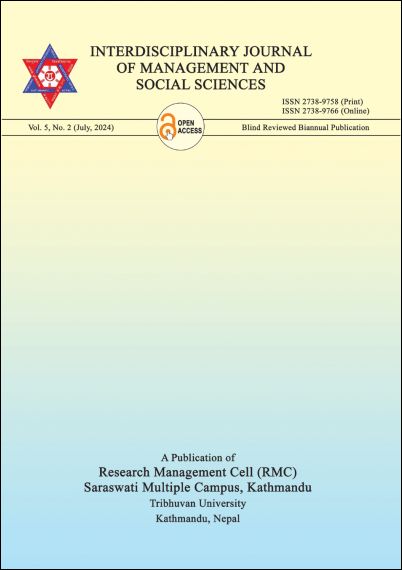विश्व राजनीतिमा वैज्ञानिक समाजवादी चिन्तनको विकास {The Development of Scientific Socialist Thought in World Politics}
DOI:
https://doi.org/10.3126/ijmss.v5i2.69464Keywords:
वैज्ञानिक समाजवादी चिन्तन, कम्युनिस्ट लिग, कम्युनिस्ट घोषणापत्र, पहिलो अन्तर्राष्ट्रिय, पेरिस कम्युन, दोस्रो अन्तर्राष्ट्रिय, अक्टोबर समाजवादी क्रान्ति, तेस्रो अन्तर्राष्ट्रिय, कोमिन्फर्म, माक्र्स, एंगेल्स, लेनिन, स्टालिन, ख्रुस्चेभAbstract
This article examines the development of scientific socialist thought in world politics. Key milestones considered include the formation of the Communist League, the publication of the Communist Manifesto, the establishment of the First International, the Paris Commune, the Second International, the October Socialist Revolution, the Third International, and the Cominform. Scientific socialist thought began with the publication of the Communist Manifesto by Marx and Engels in 1848 and developed gradually over time. This evolution is marked by a series of significant historical events. The study traces the formation of the Communist League, the creation and dissemination of the Communist Manifesto, the establishment of the First International under Marx's leadership, the Paris Commune revolution by workers and the proletariat, the formation of the Second International under Engels' guidance, Lenin's leadership in the Russian Socialist Revolution and the formation of the Third International, and the establishment of the Cominform under Stalin's leadership. The article uses an inductive method to explore these developments and aims to illuminate the progression of scientific socialist thought in world politics.
Downloads
Downloads
Published
How to Cite
Issue
Section
License

This work is licensed under a Creative Commons Attribution-NonCommercial 4.0 International License.

